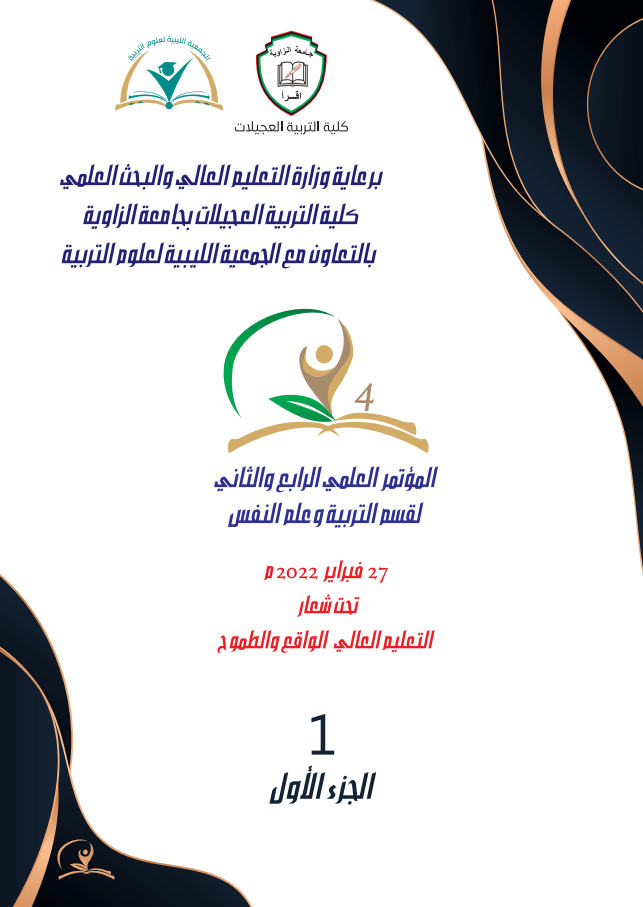Administrative and Technical Difficulties Facing a Faculty Member in Libyan Universities
Main Article Content
Abstract
The research aims to identify the administrative and technical difficulties facing a faculty member from a personal or educational point of view, which represents the research problem. The number of sample members: 75 of the total number of employees in these faculties: approximately 500 faculty members, or 6.66% of the total number. The questionnaire was divided into two parts, Personal, administrative, legal and technical difficulties, and represented in four axes: the personal, educational, administrative and societal problems faced by a faculty member in Libyan universities.
Through the statistical analysis of the responses of the research sample to the questionnaire questions, and through testing the research hypotheses, the most important results of the statistical analysis were reached, which is that the proportion of males from the study sample amounted to (56%), while the percentage of females was (44%). And that there are administrative, personal, technical and legal difficulties in varying proportions, and the administrative difficulties were in the first place with a percentage of (97.3%). In the second place came personal difficulties with a rate of (94.6%). Technical difficulties followed with a rate of (89.3%). Finally, legal difficulties came in fourth place with a rate of (88%). The research concluded with a set of general theoretical results, the most important of which is represented in: the personal difficulties that are embodied in the low value of the salary and allowances received by the faculty member and their insufficiency to meet his needs, and the increasing difficulties facing the faculty member to provide tools and requirements for conducting scientific research. In addition to the legal difficulties that lie in the lack of evidence of the legal procedures followed in clarifying the rights and duties of a faculty member, and the lack of attention to the legal aspects that ensure that a faculty member obtains his full employment rights. As well as the technical difficulties represented by the routine and complexity of work mechanisms and technical applications related to academic promotion procedures, and the absence of a work guide showing the practical and technical applications of the faculty member’s transactions. As for the administrative difficulties, the most important of which is that the faculty members face administrative difficulties that prevent their professional performance to the fullest. Also, most of the administrative procedures for a faculty member are routine, complex, and time-consuming. Based on the previous results, the researchers reached the most important recommendations, which lie in the need to develop the university and academic work system in line with the development, diversity and increasing needs of faculty members, and to develop solutions and radical treatments for personal, administrative, legal, and technical difficulties facing faculty members, as well as raising the level of performance of faculty members. Teaching staff members, providing them with modern teaching skills through advanced means, and conducting a comprehensive review of laws, regulations, decisions and work instructions regulating the work of a faculty member.

